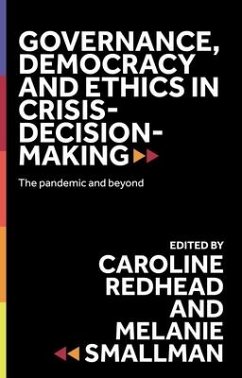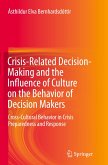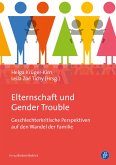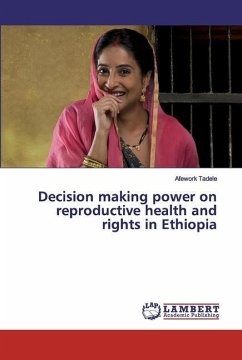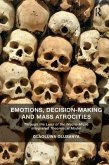In Governance, democracy and ethics in crisis-decision-making, we reflect on what it means to govern ethically in a pandemic. The chapters explore a situation in which rational or epistemic framings of COVID-19, focused on data and scientific ways of knowing the world, rub up against the way people experienced the pandemic as an unexpected, and often harmful, event in their own lives. The book brings together findings from research teams who have scrutinised legislation and guidance issued during the pandemic. In their exploration of decision-making processes from the everyday to the global, the contributors consider whether and how values have featured in decision-making, and sometimes why they have not. Exploring issues ranging from the authority of the World Health Organization and the power of data during an emergency, to the role of public engagement as a source of policy evidence, contributors consider whether (and how) the expected standards and norms of public life and decision-making should be different in times of crisis. The answers to the questions discussed in this book will be vital in reviewing our experiences of emergency decision-making. Now that we have emerged from the COVID-19 pandemic, the essential lessons drawn out in this book should direct and constrain future decision-makers in both ordinary times and extraordinary emergencies.

